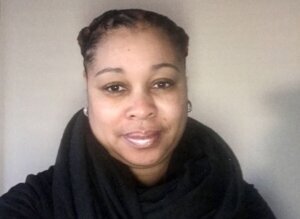Parents with a child who is thinking about or questioning their gender or sexual identity might not understand or know how to respond. One D.C. area clinical psychologist has some advice to help.
Approach the topic with unconditional and nonjudgemental love.
“Empathy, absolute empathy,” advised Ivory McMillian, a Nationally Certified Counselor who is a Licensed Clinical Psychologist in Virginia and a Licensed Professional Counselor in D.C.
McMillian also is an Assistant Professor in the Forensic Psychology Department at the D.C. campus of the Chicago School of Professional Psychology.
How parents initiate conversations and approach their children will depend on their relationship.

“But the thing that is important is that you invite the conversations, that you are clear that the love is there and not going away,” McMillian said. “That you are your child’s biggest cheerleader.”
McMillian noted that adolescence is an important time for emotional development in any number of areas.
Children with gender and identity questions might already need support figuring out friend groups, what they’re good at, what they want to do when they grow up and also whether they’re in an environment where they’re being accepted by peers.
Questions along those lines might include: Who am I? Who do I want to be? Where do I fit in?
“Friend groups are really important. Fitting in is really important, but fitting in starts at home,” McMillian said.
LGBTQ+ community members identify as lesbian, gay, bisexual, transgender, queer and more. McMillian defines the plus sign in LGBTQ+ as anything or everything. That can include non-binary, gender expansive, transgender, two-spirited or other identities not explicitly included in the acronym.
What “queer” means is determined by the individual who feels they don’t fit into traditional identities — how they define themselves.
“That’s the thing about the titles, right? It is about how a person individually defines themselves,” she said.
As for using the word “cisgender?” That phrase applies to gender identities that correspond with those assigned at birth by a medical professional. McMillian states as an example, “I’m a cisgender female; I am a cisgender female because I present like a woman and I identify as a woman.”
McMillian advised parents to embrace their child in the way that the child “presents” their identity.
“That’s super important because that arms them. It’s a protective factor. That arms your child with the ability to go out into the world and face adversity,” she said.
Parents who are helping a child explore what’s going on internally should understand that people don’t know what they don’t know. McMillian advises against perceiving a child’s condition from your worldview as their parent.
“And so that means being humble and presenting with humility. Letting our kids tell their own story, what’s going on with them and how they see the world,” McMillian advised.
She said to have empathy and humility and to focus on what your child needs in the moment.
McMillian said more information and support on the subject can be found on the Parents, Families and Friends of Lesbians and Gays (PFLAG) website.








